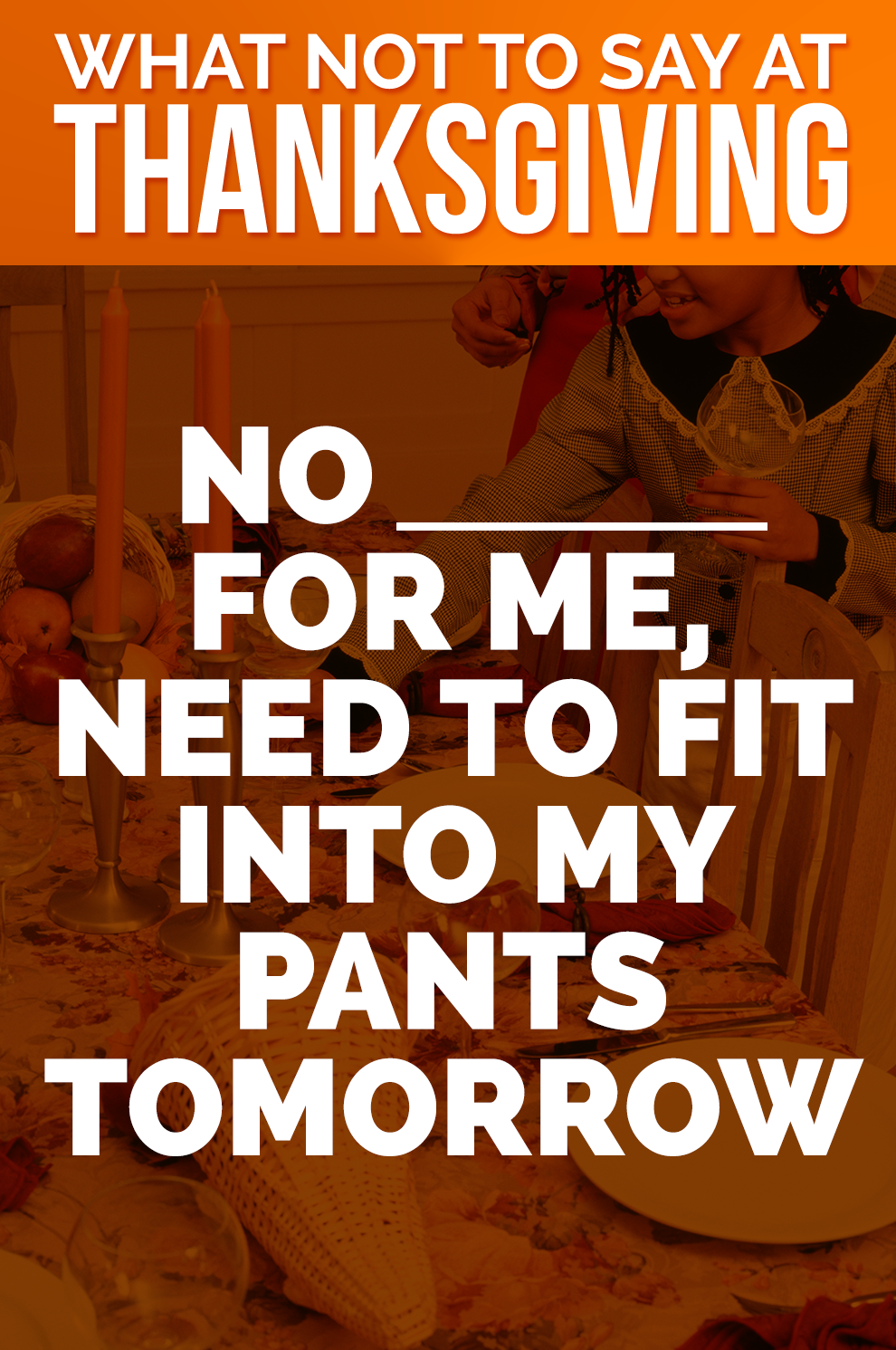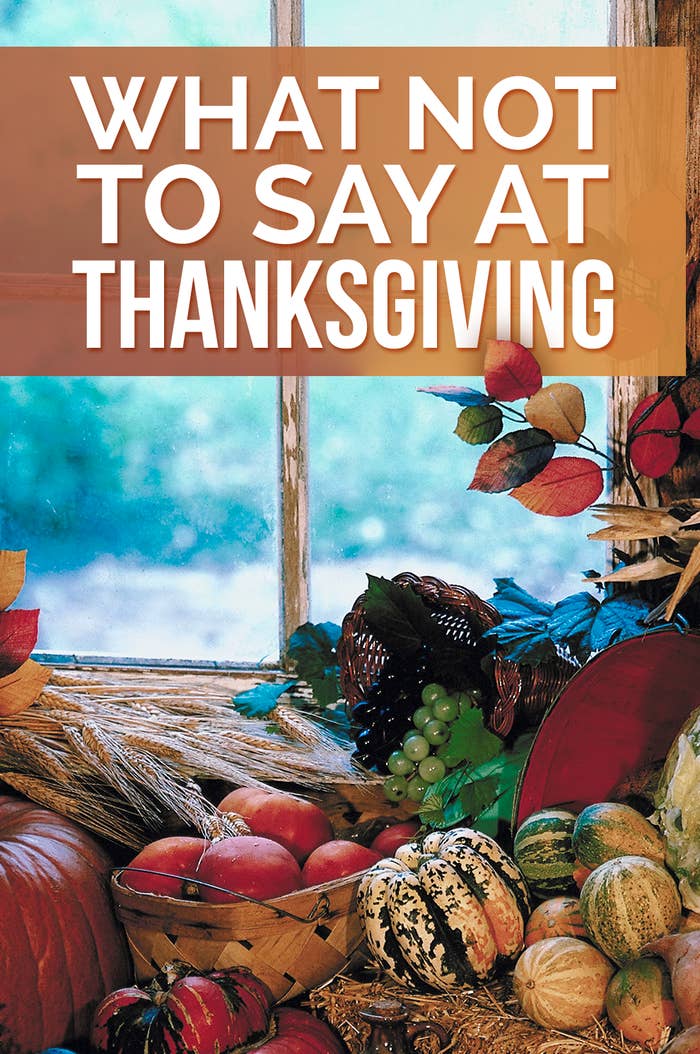
The way we talk about food matters.
Anyone who's ever been sensitive about their diet or body can attest to this, but it's especially true for people who live with eating disorders or disordered eating. During the holidays, it's the kind of thing that can, at best, ruin a meal, and, at worst, trigger a relapse. Sometimes the offense is obvious, like being told flat-out you shouldn't be eating what you're eating. Other times it's more innocuous, in statements that, despite being well-intentioned — a warning from a relative about "hidden calories" in a dish, or an observation of how little someone else is eating — can make a person with a history of disordered eating obsess over their decisions. When dinner-table conversation is couched in terms of compensation — think: comments about what someone has to do before or after this dinner to "make up" for it — it implies something inherently negative about the meal everyone is sharing.
Because we largely can't understand the details of another person's relationship with food, the best practice is a simple one: Don't offer unsolicited commentary on the food that is or isn't on someone else's plate. Here are some specific statements to avoid.
Avoid language that categorizes specific foods or dishes as "bad."
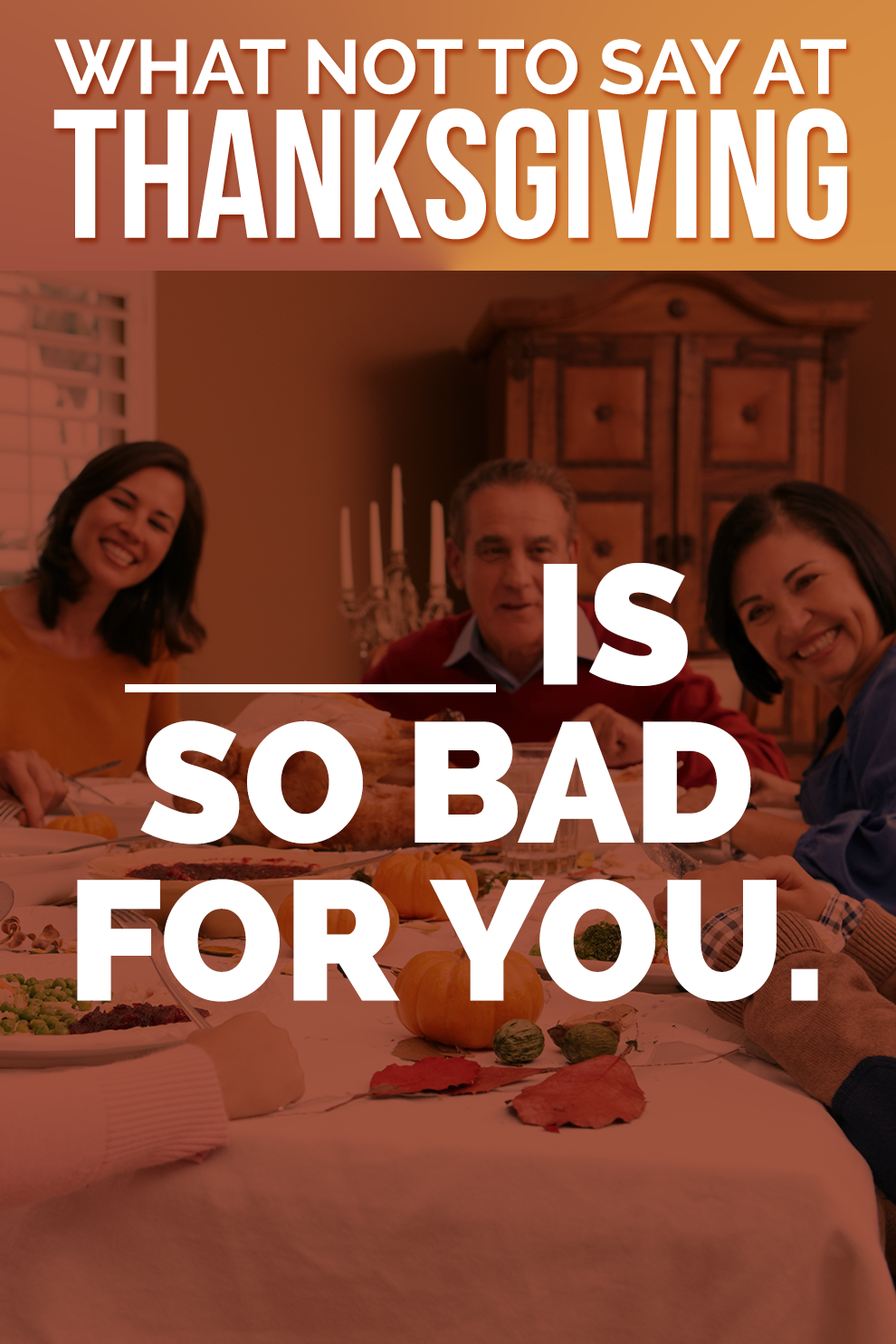

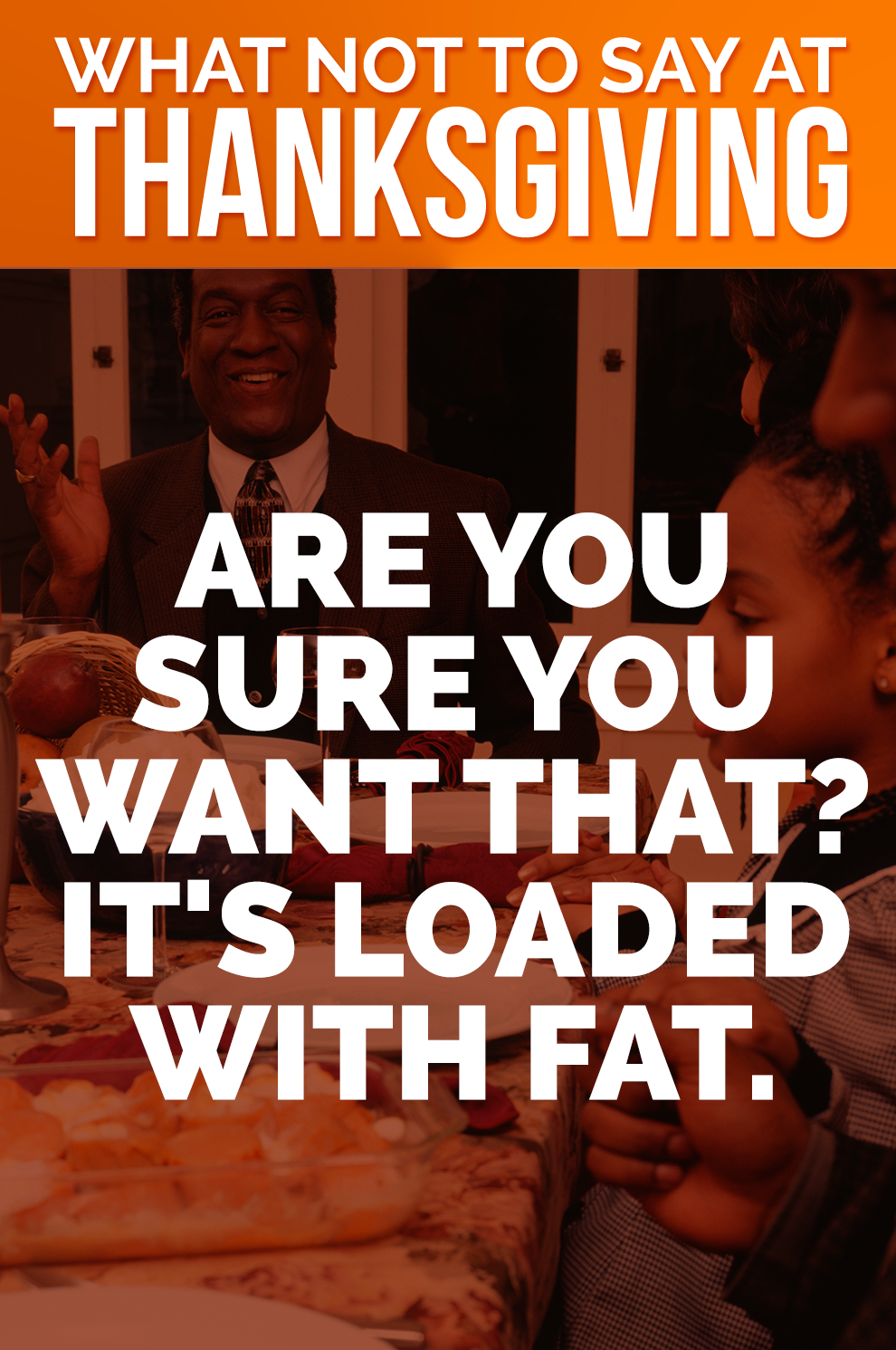
Try not to point out how much someone is eating, even in jest.



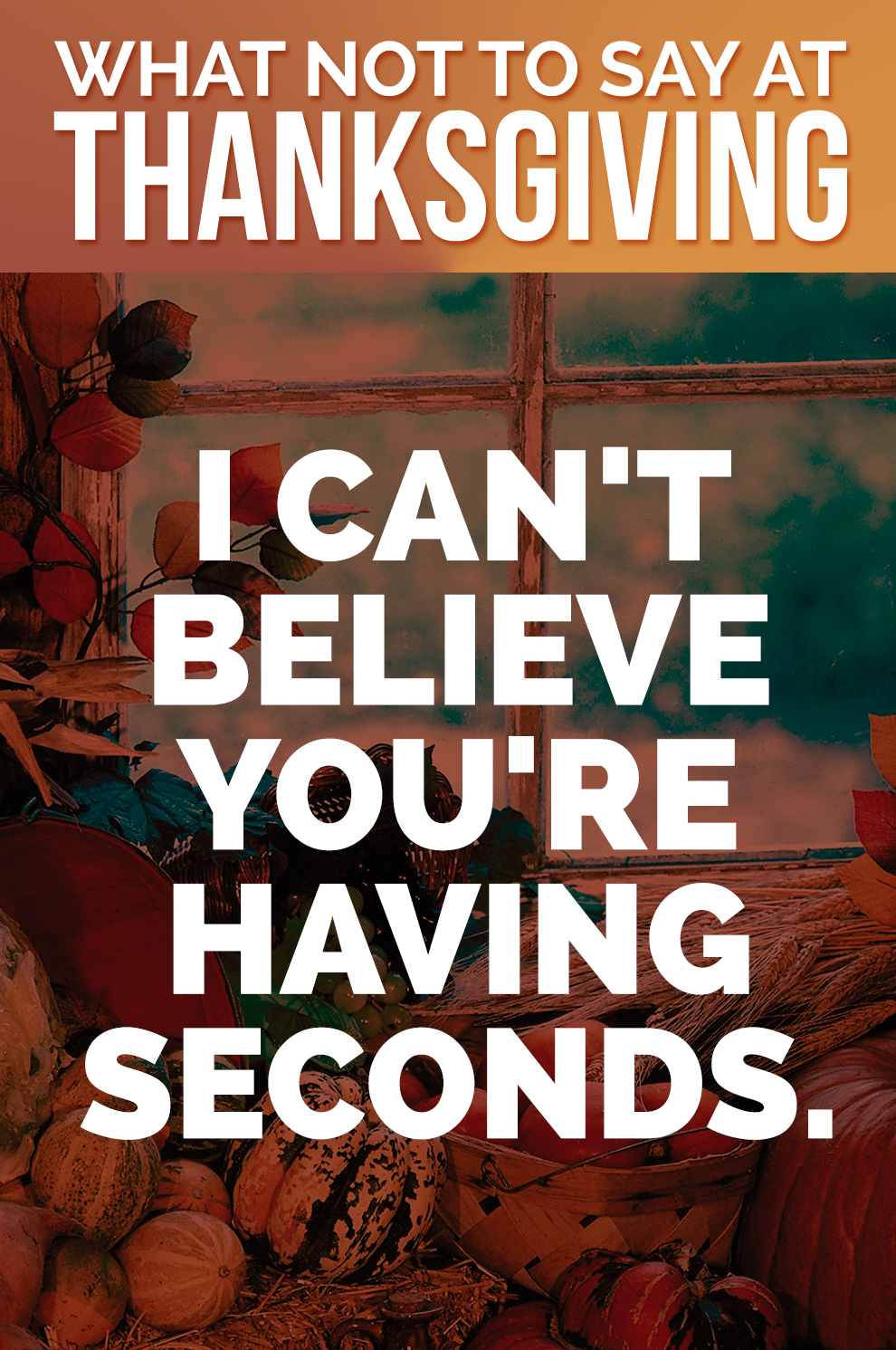
And on the flip side, avoid urging someone to indulge in a food they might be uncomfortable eating.
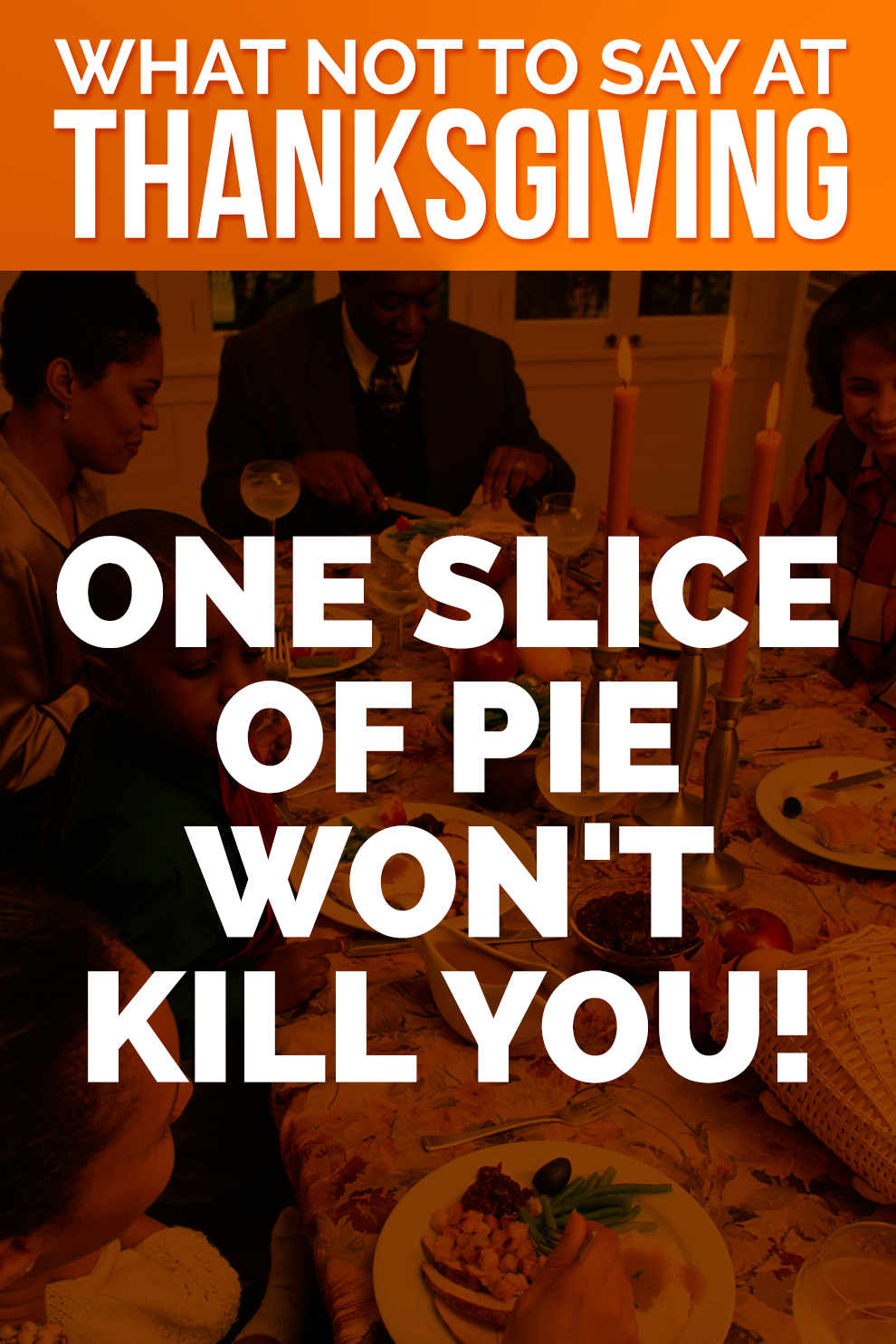

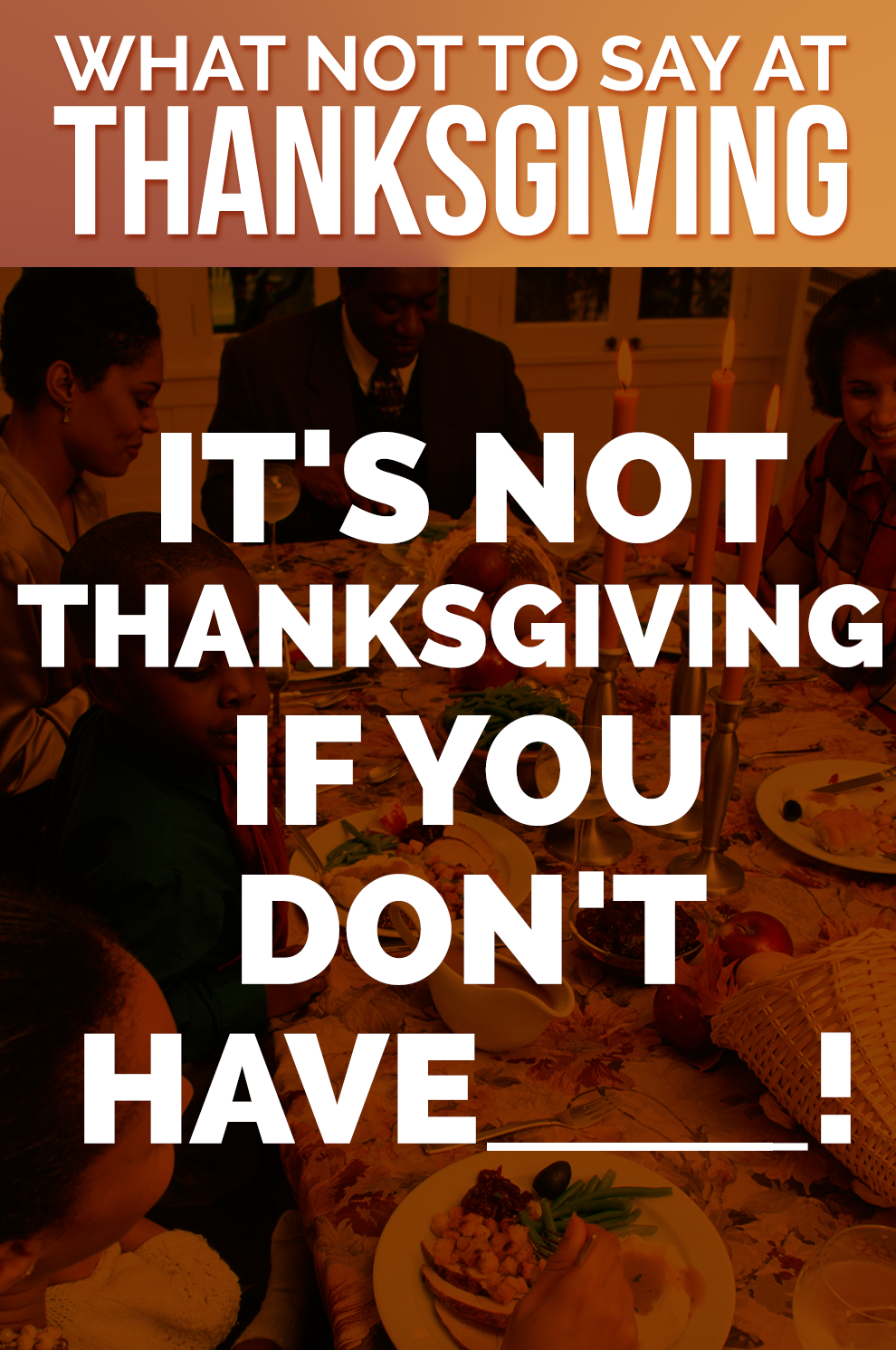
Steer clear of statements that imply the meal is something you have to punish yourself or "make up" for.



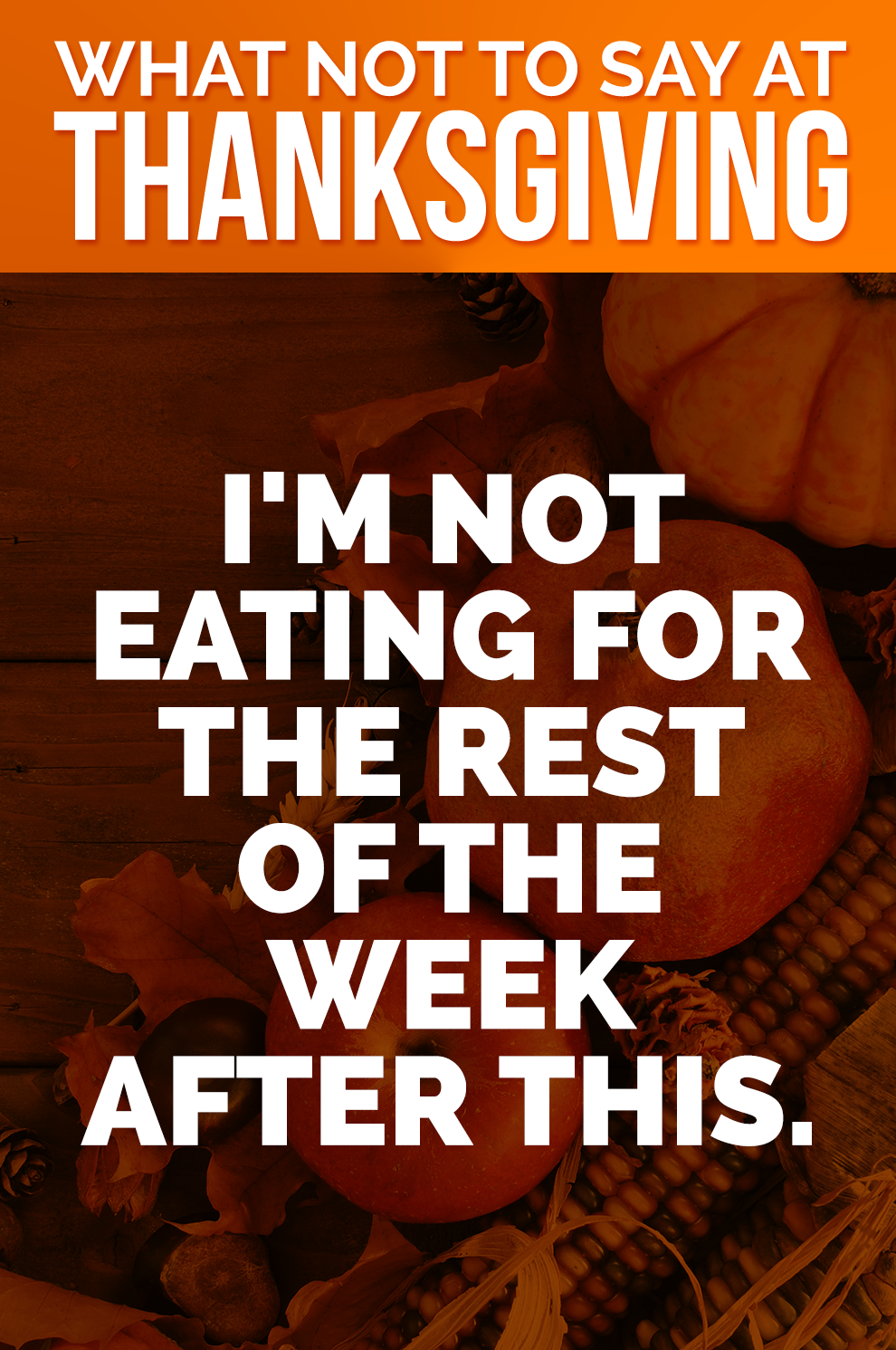
Be nice to yourself! You'll fit in those pants tomorrow — and look great doing it.
